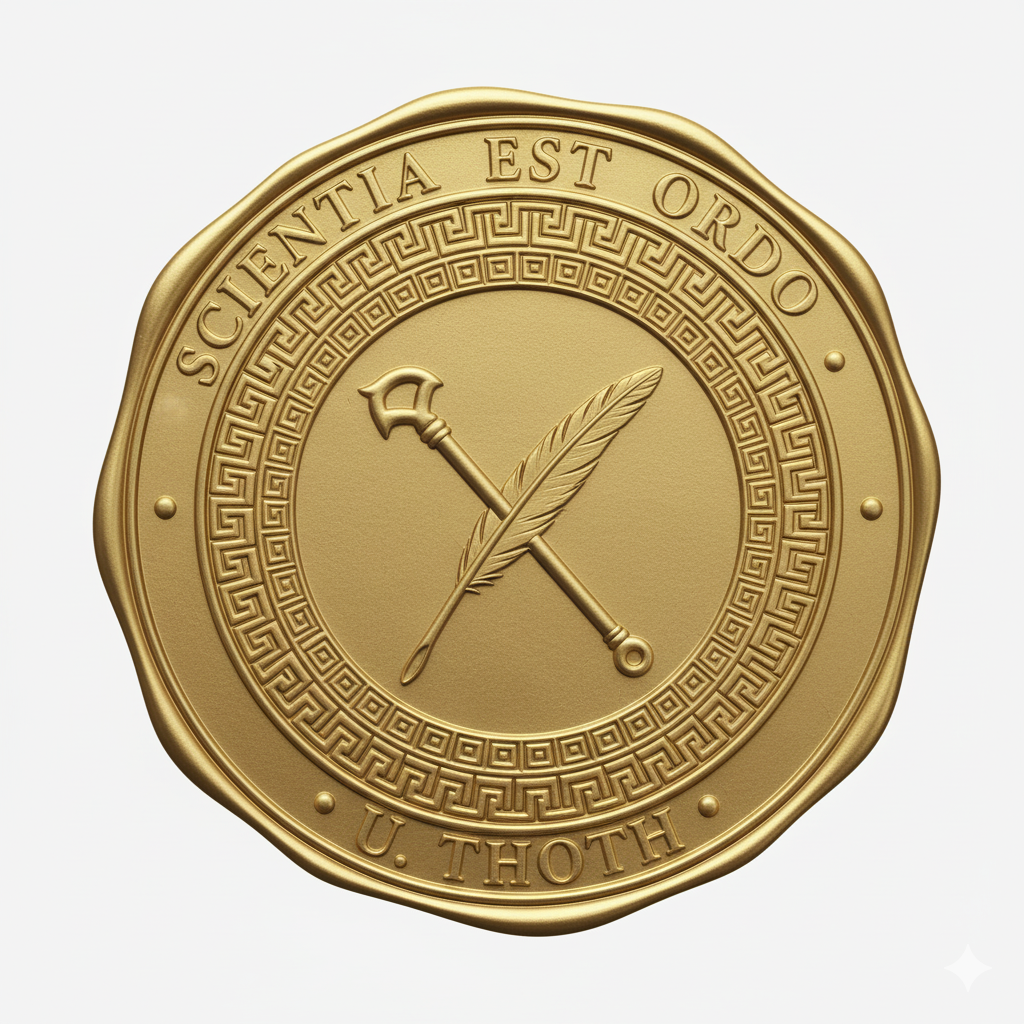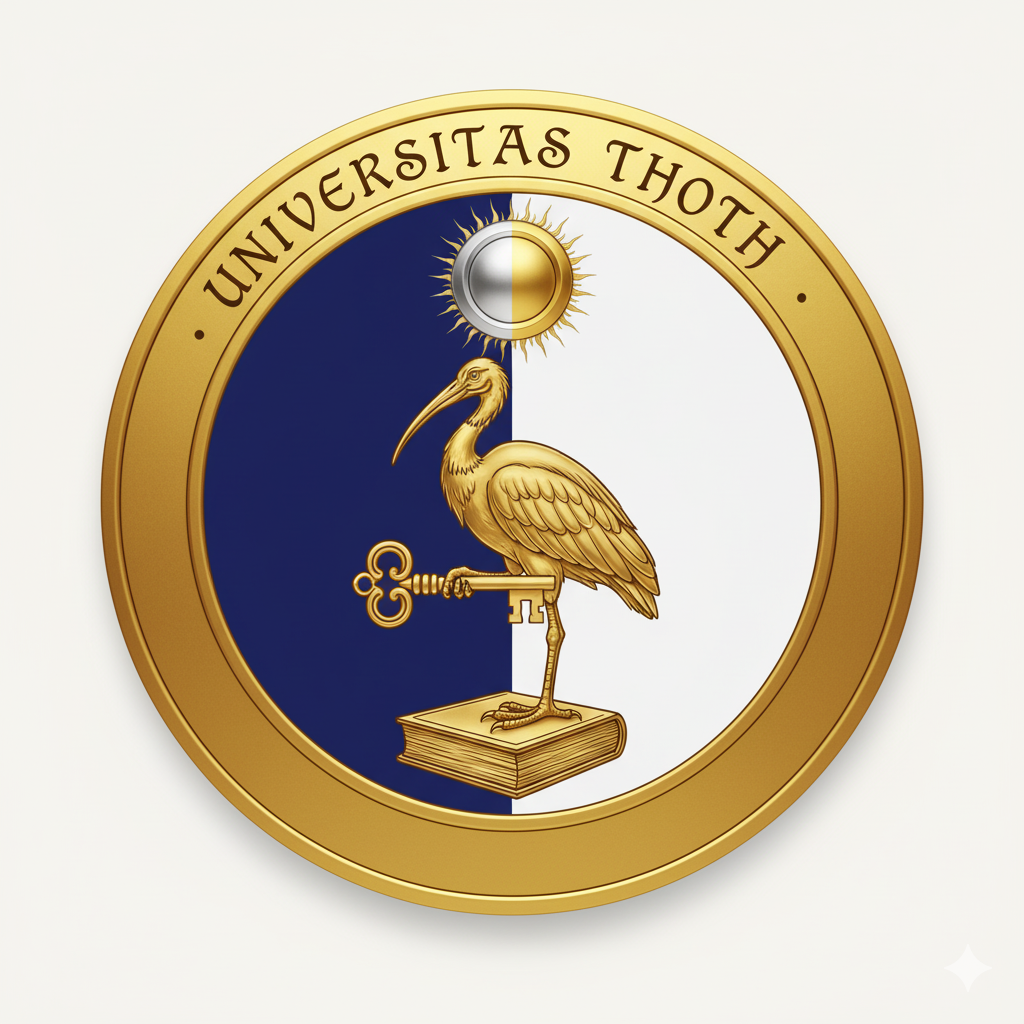University of Thoth
In a world where knowledge is older than creation, the University of Thoth stands out for its excellence in all fields. Founded near the beginning of the world, the University was created at the behest of Thoth who saw fit to create an institution that encouraged the pursuit of knowledge for knowledge's sake. The institution started small, as a College with only two schools: the School of Magic, and the School of Philosophy. Through the years, it grew until it gained University status and now includes six colleges:
College of Magic
School of Arcana (Sorcerers and Wizards) School of Divinity (Clerics and Paladins) School of Nature (Druids) School of Elements (Bards and Dragon-born)College of Science
School of Mathematics School of Physical Science School of Life Science School of EngineeringCollege of Social Science
School of Divinity (dual program with the College of Magic; monks attend the Social Sciences portion only) School of Political Science School of PhilosophyCollege of the Arts
School of Theatre School of Music School of Dance School of Visual ArtsCollege of Medicine
Medical Practitioners (MD) Program Medical Academics (M.M.S./Ph.D) ProgramCollege of Law
Legal Practitioners (JD) Program Legal Academics (Doctor of Law/LLM) ProgramThe Biblioverse
In addition to these prestigious colleges, the buildings of the University are built around the crowning feature of the University: its library. Known as the Biblioverse, the University's library is one of a kind. Created before the University was founded, the library follows Thoth's mantra about the collection of knowledge. Students at the University benefit from having virtually unlimited access to the collections contained within the Biblioverse.Structure
The High Priest of Thoth serves as the President of the University. The President serves as the administrative head of all campuses of the University and, specifically, as the Curator of the Grand Temple Campus. Each campus is headed by a Curator and the President of the University serves as the chair of the Board of Curators, which functions like a Board of Directors. The current President is Benjamin Tyler.
Each campus is headed by a Curator, who serves as the administrative head of that campus and as the chair of the Board of Deans for that campus. As noted above, the President of the University serves as the Curator of the main campus at the Grand Temple of Thoth and chairs the Board of Deans for that campus in his capacity as Curator.
Each college at the individual campuses is headed by a Dean. The Deans are the administrative heads of the colleges, serving under the direction of their supervising Curator.
The University has a single Provost, who works out of the Grand Temple Campus. However, each campus (except the main campus) maintains a Vice Provost to oversee the academics at that campus. The current provost is named Mara Wooster.
Other officers of the University include:
- Registrar (current holder: Nellaser Formaline)
- Bursar (current holder: Marcus Wooster)
- Director of Financial Aid (current holder: Albert Forecastle)
- Director of Admissions (current holder: Persephone Price)
- Facilities & Grounds Coordinator (current holder: Timothy Urgard)
- Director of Food Services & Dining Operations (current holder: Kevin Bertenpoff)
- Professor
- Associate Professor
- Assistant Professor
- Adjunct Professor
- Instructor
Culture
Student Life
The University student body is made up mainly of younger students. These students are typically focused on academics and doing well in their programs. They also are determined to enjoy life while they can and usually do a good job balancing priorities. Students at the University of Thoth spend their first year engrossed in general studies. During this year, students are encouraged to take intro-level courses from as many Colleges and Schools as possible so they become acquainted with a wide variety of disciplines. First-year students are also required to wear a uniform of blue and purple robes, the colors of Thoth. First-year students also live in dormitories located in the middle of campus, close to the Biblioverse. These dorms are set aside specifically for first-year students so that they can form friendships with peers. Beginning second-year, students choose a College to study in. The College of Magic has special rules that set it apart from the rest of the University. All students who select the College of Magic as their primary course of study are required to live in dormitories that adjoin the College. The other Colleges have dorms adjoining their buildings, but none but the College of Magic require their students to live in the adjoining dorms. There are also dorms for returning students near the Biblioverse in the center of campus. The University has a myriad of clubs and other extracurricular offerings for students to choose from. These clubs provide outlets for students of all interests and backgrounds. In addition, the University recognizes several fraternal and sororal organizations.Fraternities
- Elven Brotherhood
- Dwarves' Guild
- Society of Gnomish Pride
- Druid Circle of Circles
- Warriors' Guild
- Mages' Guild - Fraternal Division
- Order of Dragons - Fraternal Division (Dragons only, but can include dragons honorarium)
Sororities
- Elven Sisterhood
- Society of Gnomish Pride
- Druid Circle of Circles
- Female Empowerment Society (soral version of the Warriors' Guild)
- Mages' Guild
- Order of Dragons - Sororal Division
- Sisterhood of the Mother - Sororal Division
Code of Conduct
The Code of Conduct lays out the standards of behavior that students must obey. Code of Conduct violations are treated most severely by administration. A student found to have violated the Code of Conduct may face immediate expulsion or, at the very least, academic probation, unless they prove mitigating circumstances by clear and convincing evidence. The Code of Conduct prohibits such behavior as:- Creating an unsafe environment for another student or students or faculty or any of them;
- Fighting with another student outside of university-approved arenas or university-approved times;
- Taking the life of a fellow student or a member of the faculty or staff (automatic expulsion with no mitigating circumstances
- Assaulting any person sexually while on university property or attending a university-sponsored event (automatic expulsion with no mitigating circumstances
- Failing to comply with the terms of any disciplinary decision, including the decisions for Honor Code violations.
Honor Code
The Honor Code is the academic code aimed at promoting academic integrity. While infractions of the Honor Code are typically less severe than those of the Code of Conduct, they can still be pretty severe. The Honor Code prohibits such behavior as:- Cheating in any way on any coursework;
- Plagiarism;
- Failure to comply with University Administration directions; and
- Destruction of knowledge, whatever the form.
School Discipline
All disciplinary issues go initially before the Associate Dean of Student Affairs for the student’s respective College. The decision of the Associate Dean may be appealed to the Dean of the same College. The decision of the Dean may be appealed to the Curator of the campus, or to the Deputy Curator of the Grand Temple Campus. The decision of the Curator (or Deputy Curator) may be appealed to the President of the University. The decision of the President may not be appealed and is final. An appeal may only be raised by the student if the decision at the current level is against their interest. The administrative officials may have different policies regarding how deferential to be to the level(s) below them, although the President generally undertakes his own review of the case completely independent of the decisions of subordinate officials.Faculty
The Faculty at the University of Thoth are mages, scholars, priests, and monks -- experts in their various fields. They are dedicated to their research and to educating the next generation of knowledge-seekers. Some faculty members value research more than teaching, while others make education their highest priority. All are required to find the balance.Instructors
All faculty must begin their careers as instructors. They focus entirely on teaching and are ineligible for research funding from the University. During these years, a committee made up of the Provost, the Dean, and the instructor's Department Chair evaluates the instructor's performance. Beginning after five years, and continuing every two years, the instructor's application goes into review and the committee determines whether to promote the instructor to a professor, at which point they become an adjunct professor.Professors
Upon reaching adjunct professor, a faculty member begins their progression toward full professorship. There is no specific timeline for each level of professorship, but typically a person cannot become a full professor before 20 years from the time of gaining professorial status. Upon retirement, a faculty member that has reached professor or associate professor status may be eligible to receive emeritus status. At that point, their title becomes Professor Emeritus. Such a decision is made by the Board of Curators.Public Agenda
The University seeks to promote the quest for knowledge and to create generations of intellectuals.
Assets
- University Library
Tuition & Fees
Undergraduate
| Fee Item | Cost |
|---|---|
| Tuition | 250 gp |
| Housing | 100 gp |
| Meal Plan | 50 gp |
| Total | 400 gp |
Graduate
| Fee Item | Cost |
|---|---|
| Tuition | 500 gp |
| Housing | 100 gp |
| Meal Plan | 50 gp |
| Total | 650 gp |
Program Fees
| Fee Item | Cost |
|---|---|
| Magic Fee | 20 sp |
| Music Fee | 10 sp |
| Music - Private Lesson Fee | 5 gp |
| Combat Course Fee (for weapon maintenance) | 18 sp |
| Science Lab Fee | 10 sp |
| Law School Fee | 20 sp |
| Medicine Fee | 30 sp |
History
300 years after the creation of the world of Draconia, Thoth, the god of knowledge, revealed to his high priest, Alexander Marquis that it was his will that an institute of learning be established in Draconia, a centralized one that would teach all that sought knoweldge. In subsequent visions, Thoth revealed his designs for the University and five years later, the University of Thoth opened its doors. In the beginning, it was only called the College of Thoth, and it only had two schools: a School of Magic and a School of Philosophy. The College began to expand rapidly and, before long, it had gained University status. Over time, the University added four other Colleges, one of which (the College of Social Science) absorbed the old School of Philosophy. The College of Magic remains the largest program at the University, though all programs remain highly competitive.
The University also expanded by building new campuses around Draconia. To date, there are four campuses: (1) the Grand Temple Campus; (2) the Supreme Republic Campus; (3) the Sirine Campus; and (4) the Isitor Campus. The Board of Curators has been discussing adding a fifth campus in the United Empire of Elysium.

Irthir ui Molis
Type
Educational, University
Capital
Alternative Names
The University
Leader Title
Subsidiary Organizations
Deities
Location
Related Ranks & Titles
Controlled Territories


Comments